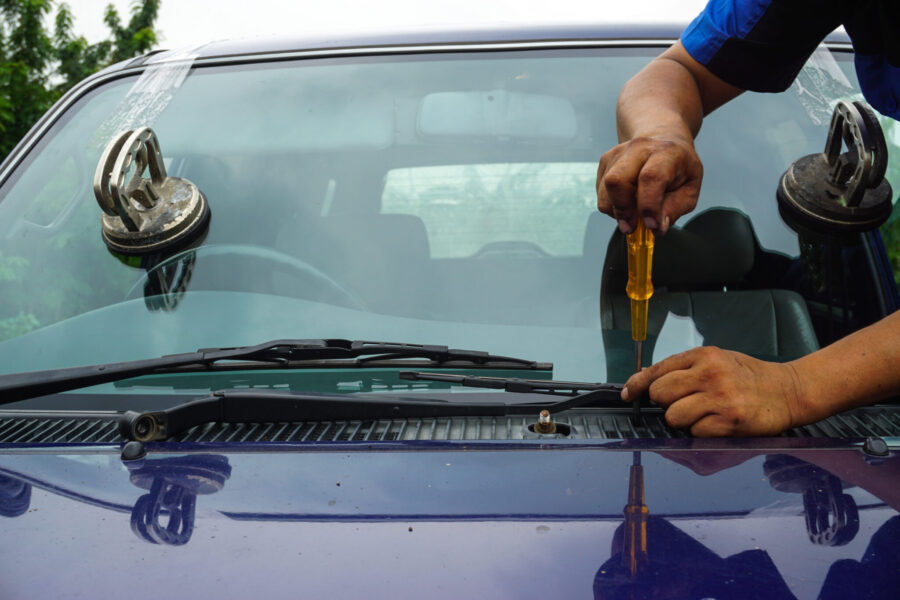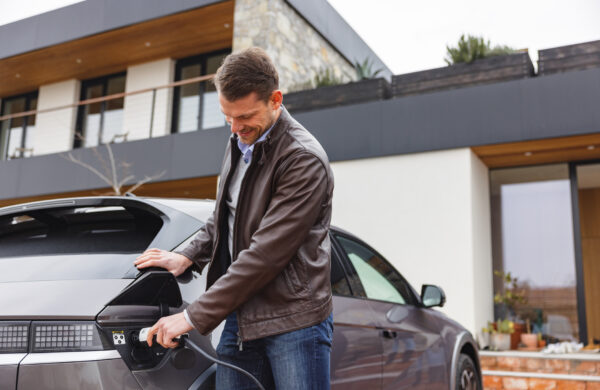Auto insurance fraud is a widespread problem that can raise your premiums, leave you on the hook for damages and potentially even land you in legal trouble. To avoid these consequences, learning how to avoid auto insurance fraud is important.
The Cost of Car Insurance Fraud
The Federal Bureau of Investigation (FBI) estimates that insurance fraud costs more than $40 billion per year – losses that are passed on to consumers. The average U.S. family pays an additional $400 to $700 per year in insurance premiums due to fraud.
Auto insurance fraud is particularly common. According to the National Association of Insurance Commissioners (NAIC), auto theft fraud alone costs $7.4 billion annually.
Work with a Reputable Insurance Agency
The FBI says premium diversion is the most common type of insurance fraud. A typical premium diversion scheme involves a dishonest insurance agent who collects premiums and then pockets the money, leaving the client without car insurance coverage.
For example, Newsweek says a Florida insurance agent stole more than $131,000 from clients. As a result of the agent’s fraud, some people had no coverage when Hurricane Ian damaged their property.
In another case, Insurance Journal says a California agent stole more than $62,000 from at least 10 business owners. The agent created fake certificates of insurance to dupe her clients.
If you’re a victim of auto insurance premium diversion fraud, you may end up paying “premiums” without receiving any benefits. If you have a claim, you won’t have coverage, and you could also encounter problems with your car registration due to a lack of required insurance.
Protect yourself from this type of scam by:
- Working with a trustworthy insurance agency and making sure your agent is licensed to sell insurance.
- Maintaining records. Keep records of your payments as well as insurance policy documents showing coverage.
- Making payments to the insurance company. Ensure that any checks are made payable directly to the insurance company, not to the agent.
- Trusting your gut. If you think something may be off, contact the insurance company directly to confirm your coverage.
Protect Yourself from Staged Accidents
Imagine you stop at a red light. Suddenly, the car in front of you reverses and crashes into your vehicle. Two people get out of the car, claiming you rear-ended them. One of them claims a back injury. They want you to pay for damages and injuries.
This scenario illustrates a common type of staged accident scam. Other staged accidents may involve multiple drivers who work together to make it look like you caused a crash. According to NBC, 11 people in Washington and California pleaded guilty to participating in a staged auto accident ring that operated between 2017 and 2020.
Protect yourself from becoming a victim by:
- Installing a dash cam. If you’re the victim of a staged accident, dash cam footage could prove your innocence.
- Driving safely. Scammers often slam on their brakes to induce a rear-end collision with the vehicle behind them. You can protect yourself by avoiding distracted driving and leaving sufficient room between your car and the vehicle in front of you.
- Watching out for drivers who wave you forward. They may be working with other drivers to stage a crash, so don’t make a turn until you’re sure the road is clear.
Beware of Faulty Windshield Replacement Fraud
A man approaches you in a parking lot. He says he noticed your windshield was faulty and that it could be dangerous. He mentions that he can replace it, and you won’t have to pay a penny because your insurance company will cover the cost. Your windshield looks fine to you, but you’re not an expert.
If this happens, you’re probably being targeted for a windshield replacement scam.
According to the National Insurance Crime Bureau (NICB), this type of scam is especially common in Florida. Scammers have been going door to door offering gift cards and encouraging car owners to sign an assignment of benefits form that lets the scammer file an insurance claim on the owner’s behalf.
Give Your Insurance Company Accurate Information
If you think it’s fine to stretch the truth when talking to your insurer, you could end up being the source of auto fraud.
Some cases of car insurance fraud are obvious. For example, you’ve committed fraud if you dump your car in a lake and then claim it as stolen to receive an insurance payout. This is called hard insurance fraud, and it occurs when a policyholder intentionally destroys property to collect a payout. On the other hand, soft insurance fraud occurs when policyholders provide inaccurate information on insurance claims and applications.
Whether it’s the hard or soft variety, insurance fraud is a crime. According to Investopedia, insurers don’t always catch insurance fraud immediately, but they could discover it in the long run, and their ability to catch discrepancies has increased tremendously thanks to new technologies and AI-powered tools.
If you are caught acting fraudulently, there can be serious consequences. For example, the insurer could cancel your policy, and you may have difficulty securing coverage with another insurer. Alternatively, your auto insurance rates could increase, you could face fines or, in some cases, you could even face jail time.
Common ways that policyholders commit car insurance fraud include lying about:
- Your address. Where you live can impact your insurance premiums due to some areas having higher crime rates. To take advantage of this cost difference, some people may lie about where they live.
- The source of damage. When policyholders report a legitimate claim, they are sometimes tempted to include pre-existing damage in their claim. For example, you may have previously dented your car while backing out of your garage. Later, another driver rear-ends you at a low speed. When you file a claim, you say the old dent was caused by the recent rear-ending.
- How you use your car. When you apply for coverage, your insurer will want to know how many miles you drive on average and your main reason for driving. Lying about this could cause problems. For example, you may use your car to make deliveries for work but say you only use it for personal reasons. If you are involved in a crash, and it’s clear you were using your car for work at the time, the insurer could deny your claim based on an exclusion for commercial activities.
Reporting Car Insurance Fraud
If you believe you have been the victim of car insurance fraud, you should:
- Contact your insurance company. Let the company know about staged accidents, windshield repair scams, premium diversions and other types of fraud.
- Report the fraud to your state insurance department.
- Contact the National Insurance Crime Bureau. You can report fraud to the NICB by calling 800-TEL-NICB (800-835-6422).
Work with a trusted insurance professional who can advise you on how to avoid auto insurance fraud while securing the coverage you need. Higginbotham has been helping people find affordable, reliable auto insurance coverage for 75 years. Learn more and talk to a member of our team today.






